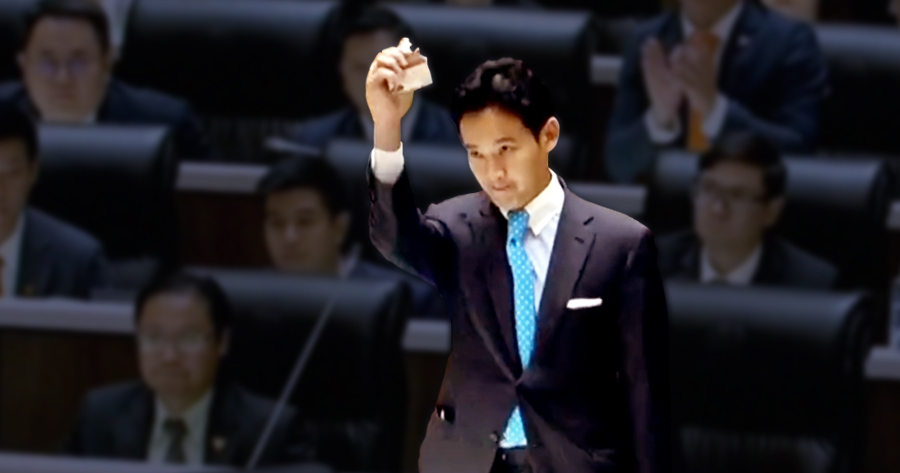On July 19, MPs gathered for the second round of prime ministerial voting after PM-elect Pita Limcharoenrat failed to secure enough support in the first round on July 13. However, during the session, the Constitutional Court ordered Pita’s suspension as an MP due to his ownership of ITV media stocks.
To understand how the ruling was reached, the situation must be traced back to the appeal filed against him just days before his party won the general election.
Political activist Ruangkrai Leekitwattana filed a complaint with the Election Commission on May 10, requesting a Constitutional Court ruling on whether Pita had violated a constitutional provision prohibiting individuals with shares in a media company from running for parliament. This sparked a national controversy, with some arguing that ITV had lost its mass media status since 2007, while others believed Pita’s eligibility for the prime minister position was at risk.
By June 9, the Election Commission had launched an investigation into Pita, though it remained uncertain at the time whether formal charges would be filed against him.
Then, just a day before the vote, on July 12, the Election Commission forwarded the complaint to the Constitutional Court for a ruling on Pita’s qualifications as leader of the progressive party. Pita condemned the move, calling the timing unjust and politically motivated.
Ultimately, on July 19, shortly before the parliamentary vote, the Constitutional Court accepted the case against him, declaring that he was unqualified to run in the May 14 election. As a result, the court ordered his temporary suspension pending further review, a process expected to take approximately four months before reaching a final verdict.
Despite his suspension, Thai law still allows Pita to stand as a candidate for prime minister in the next round. However, he must leave the lower house and will be unable to vote.
The legislative vote on whether Pita could be re-nominated has only intensified tensions, as parliament ultimately blocked his second-round candidacy.
Speculation is growing over potential mass protests by Pita’s supporters, who see this as an effort to strip them of their voting rights. Meanwhile, attention has turned to the next prime ministerial nominee. Previously, Pita stated that if he failed to secure enough votes, he would allow the party with the second-largest number of seats, Phue Thai, to put forward a candidate.
The next prime minister vote had been scheduled for July 27.
On the Phue Thai side, Dr. Chonnan Srikaew, the party’s leader, stated on June 20 that
it is still unclear if the Pheu Thai Party will be the lead party to form a government. The
matter still has to be discussed with the eight coalition parties.
Still, many believe that Mr. Srettha Thavisin is the likely nominee.





